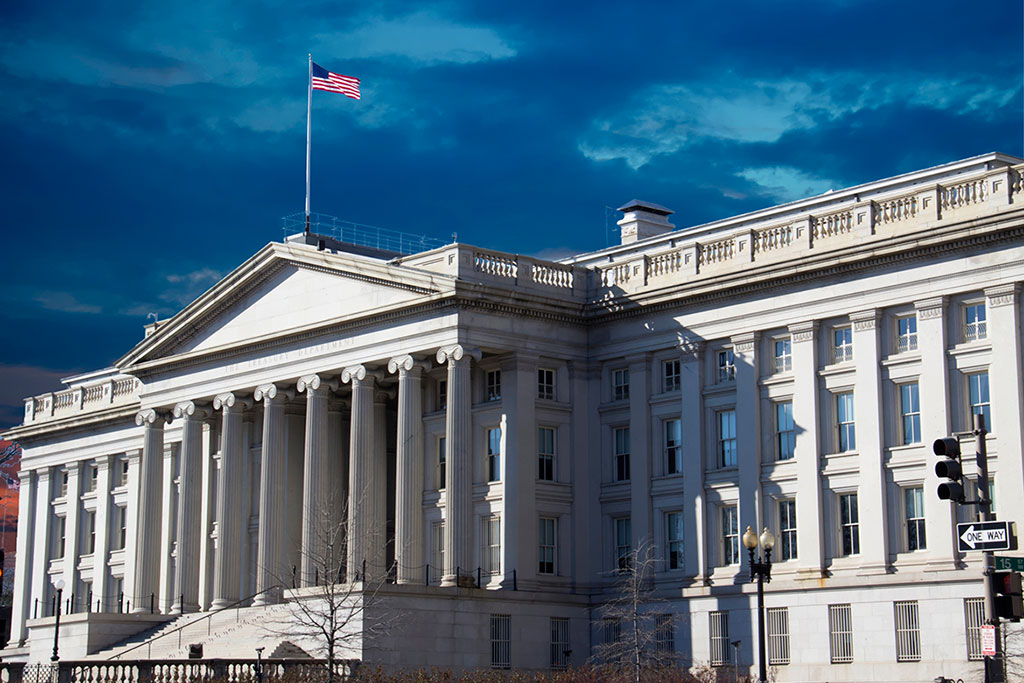
Let’s talk web3, crypto, Metaverse, NFTs, CeDeFi, meme coins, and Stocks, and focus on multi-chain as the future of blockchain technology. Let us all WIN!
The United States Department of Treasury through the Financial Crimes Enforcement Network (FinCEN) announced new sweeping measures to tame the crypto mixers in a bid to combat terrorism funding among other cyber crimes.
 Edited by Julia Sakovich
Updated
3 mins read
Edited by Julia Sakovich
Updated
3 mins read

After finding the sanctioning of the Tornado Cash only led to the introduction of many other crypto mixers around the world, the United States Department of Treasury’s Financial Crimes Enforcement Network (FinCEN) has announced new proposed measures to combat the growth of international crypto mixers. According to the announcement, FinCEN highlighted a Notice of Proposed Rule Making (NPRM) in a bid to identify international convertible virtual currency mixing as a security threat through money laundering. Precisely, the FinCEN highlighted that the CVC mixing has significantly enabled illegal activities and terrorist acts by Hamas, Palestinian Islamic Jihad, and the Democratic People’s Republic of Korea (DPRK).
The announcement comes a year after the Department of Treasury’s Office of Foreign Assets Control (OFAC) sanctioned Tornado Cash for ostensibly aiding in laundering more than $7 billion of illegal proceeds. However, the US bid to control software development has been met with notable resistance by crypto leaders including Coinbase Global Inc (NASDAQ: COIN) CEO Brian Armstrong. Moreover, most of the crypto mixers are a result of open-source software development, in the same way, a road builder cannot be blamed for the careless driving that leads to fatal accidents.
Nonetheless, the United States government has argued that terrorists have been finding their operations through crypto mixers, hence making the ongoing war in Ukraine and Israel more difficult.
“CVC mixing offers a critical service that allows players in the ransomware ecosystem, rogue state actors, and other criminals to fund their unlawful activities and obfuscate the flow of ill-gotten gains,” said FinCEN Director Andrea Gacki. “This is FinCEN’s first ever use of the Section 311 authority to target a class of transactions of primary money laundering concern, and, just as with our efforts in the traditional financial system, Treasury will work to identify and root out the illicit use and abuse of the CVC ecosystem,” added she.
The United States has played a crucial role in supporting both Ukraine and Israel in their respective wars, through financial aid and military support. Earlier this week, Tether, the leading stablecoins company, announced that it worked closely with Israel’s National Bureau for Counter Terror Financing (NBCTF) in identifying and freezing 32 addresses with about $873k linked to the Hamas group in Gaza.
Earlier this year, Israel Defense Minister Yoav Gallant announced that the NBCTF had seized crypto assets belonging to Lebanon’s Hezbollah and Iran’s Quds Force amounting to over $1.7 million. Notably, the NBCTF worked closely with blockchain analytic and forensic firm Chainalysis in identifying and freezing the funds.
Disclaimer: Coinspeaker is committed to providing unbiased and transparent reporting. This article aims to deliver accurate and timely information but should not be taken as financial or investment advice. Since market conditions can change rapidly, we encourage you to verify information on your own and consult with a professional before making any decisions based on this content.

Let’s talk web3, crypto, Metaverse, NFTs, CeDeFi, meme coins, and Stocks, and focus on multi-chain as the future of blockchain technology. Let us all WIN!





